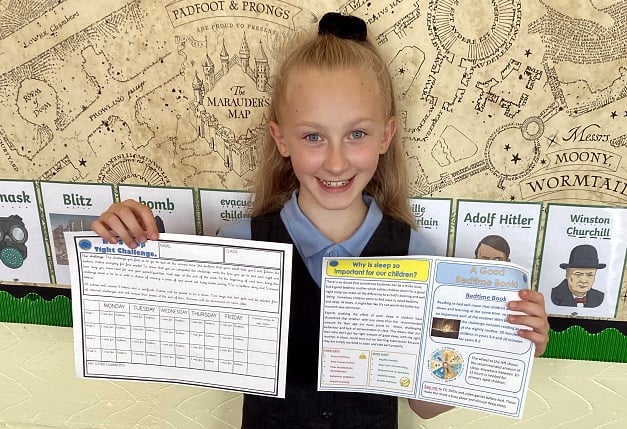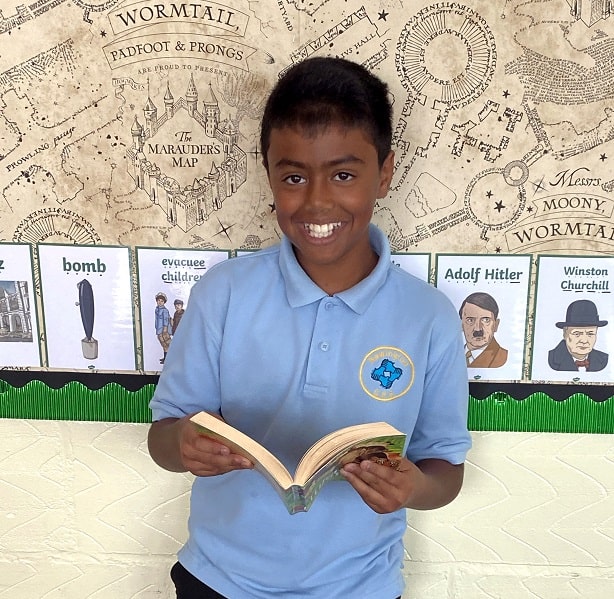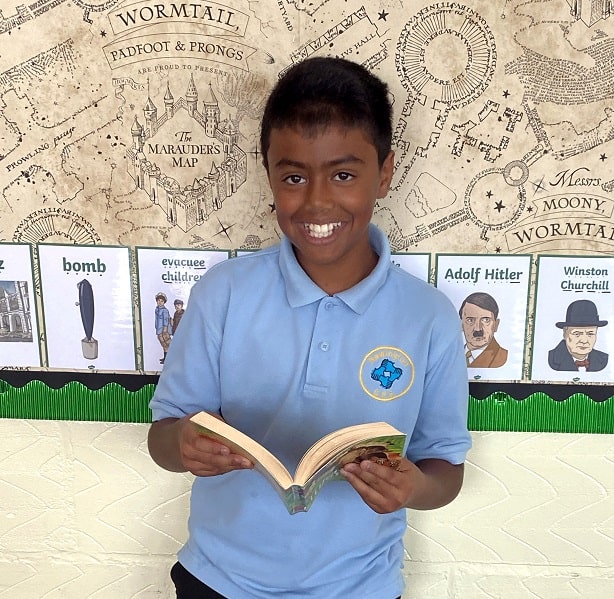

Boys and girls at Newington Community Primary School have been invited to plan their own bedtime routine.
The Sleep Challenge is to raise awareness of all the positive aspects that they will receive from a restorative night of good sleep.
The amount of sleep a child needs changes as they get older – a five-year-old needs about 11 hours a night, for example, while a nine-year-old needs roughly 10 hours.
Each pupil has been given a sleep monitoring chart to take home, with families asked to sign it off each day to verify the children have completed their bedtime routines.
At the end of term the completed challenge chart will be returned to school and pupils’ names will be entered in a draw where they can win sleep-themed prizes including pyjamas, a duvet set, a cuddly teddy bear and a bedtime storybook.
The challenge is being co-ordinated by Assistant Head Teacher Taralee Kennedy and Hannah Pullman, literacy leader, with the important value of bedtime reading as a core part of the sleep routine.
The initiative was introduced to pupils via video assembly and throughout the term teachers will discuss how the challenge is developing, highlighting its impact and sharing success stories with their classes.
Mrs Kennedy explained: “It was really important for us to get this challenge out early in the term to support parents as we know how important it is to get children back into routines.
“It’s no big secret that in order to feel alert and ready for the day we all need a good night’s sleep – a lack of it can impact greatly on brain development and the ability to learn in school.
“It is proven that sleep allows your body to recuperate from the day’s activities, secure things you’ve learnt that day, organise key information and strengthen your immune system. Without sleep, children can become unfocused, disorganised, easily upset and irritable.


“Putting sleep routines in place will help children to develop good sleeping habits and ultimately, make them happier, healthier and ready to face a day of learning.”
Head Teacher Cliff Stokes believes that a settled bedtime routine is crucial for Newington’s pupils.
He said: “The changes they make will help improve their sleep patterns – and it is important that they avoid certain activities before bedtime like using mobile phones, computers and tablets, and watching television.
“This is an effective and worthwhile challenge that our experience tells us will deliver many positive results in and out of school.”
The NHS online states: “Good sleep is important for your child’s physical and mental wellbeing. A relaxing bedtime routine is one important way to help your child get a good night’s sleep.”
It suggests a number of relaxation tips:
* Doing the same relaxing things in the same order and at the same time each night helps promote good sleep:
* A warm (not hot) bath will help your child relax and get ready for sleep.
* Keeping lights dim encourages your child’s body to produce the sleep hormone, melatonin. A child’s bedroom should ideally be dark, quiet and tidy. It should be well ventilated and kept at a temperature of about 16 to 20C.
* Once they’re in bed, encourage your child to read quietly or listen to some relaxing music, or read a story together.
* Avoid screens in the bedroom. Tablets, smartphones, TVs and other electronic gadgets can affect how easily children get to sleep.